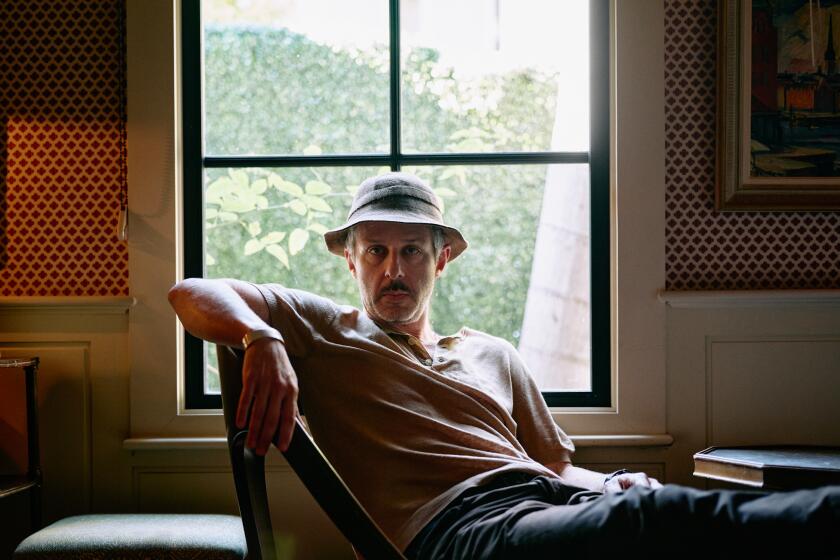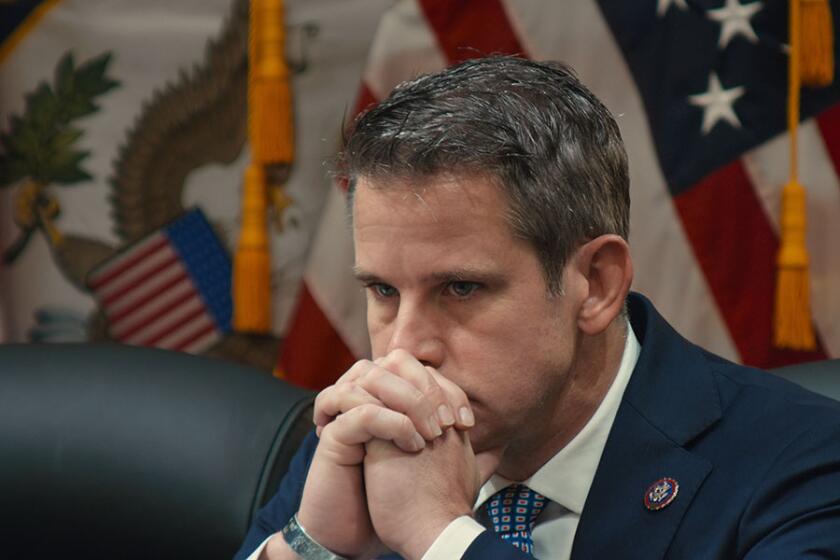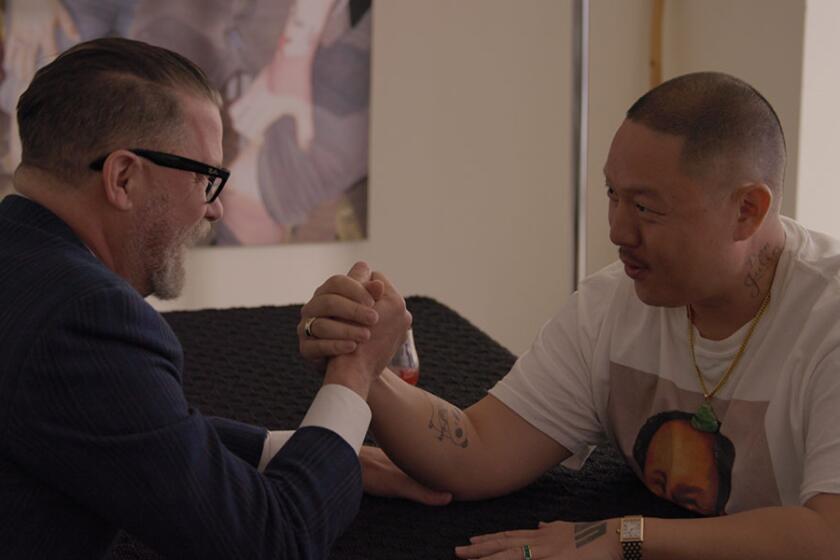China’s gift to Jews fleeing Hitler: safe haven
One of the lesser known stories of World War II that only recently has gained wider recognition is how Shanghai became a haven for Jews fleeing persecution in Nazi Germany in the late 1930s. As the fascinating documentary “Shanghai Ghetto” explains, the city was an open port where no visa was required, in part because the occupying Japanese simply didn’t want the responsibility.
Shanghai was China’s commercial center -- exotic, decadent, affluent but also riddled with poverty. Russian Jews had fled their Communist country a decade earlier and had no problem thriving amid the Chinese culture, just as British Jews had done a century earlier. As it turns out, German Jews, totaling 20,000, had no problem co-existing either, experiencing little or no anti-Semitism.
Unlike their Russian counterparts, however, these hungry and penniless refugees, with few or no skills to help them survive, were squeezed in 1943 into the poorest and most populated area of Shanghai, the Hongkew district, as a result of German pressure on the Japanese to segregate them. Yet despite their hardship, they worked together with the impoverished Chinese. Many friendships were formed.
*
Sneaking into the ghetto
For Dana Janklowicz-Mann, “Shanghai Ghetto,” which opened last Friday, became the perfect opportunity to explore her roots, because her father, Henry Janklowicz, was just a child when he left Berlin in ’39 with his mother to settle in Shanghai for the next eight years. After listening to numerous stories around the dinner table -- her father as a child was beaten daily by Russian and Japanese youths -- Mann and her husband and filmmaking partner, Amir Mann, both Israelis, decided to make a documentary about the Shanghai experience with their savings. It took five years of research, interviews, filming and editing -- including sneaking into what remains of the Shanghai ghetto two years ago with the elder Janklowicz -- but they completed their odyssey. Actor Martin Landau was so moved when he saw the film that he agreed to narrate.
“For me, the most interesting thing we learned was that even though the German refugees and Chinese, who were worse off than the Jews, were both oppressed and came from completely different cultures, they got along and helped each other under these dire conditions,” Janklowicz-Mann says.
Her partner had a different revelation. Amid the squalor and difficulties, the German refugees were able to re-create a cultural life similar to what they had in Berlin with poetry, theater, cafes, nightclubs and religious schools.
“People were living on a couple of cents a day,” Mann says. “A historian told us, for instance, that there were several different newspapers in different languages that people would read and give to one another until the pages were torn.”
The filmmakers interviewed five refugees on film, including Janklowicz, who now lives in Israel. “It was the shock of a lifetime” landing in Shanghai, he says in the documentary. “I actually remember feeling very, very afraid. I didn’t know where I was. It was a whole different world.” Yet Janklowicz has fond memories too, like of the grocer who knocked on their door several times a month with food.
Each refugee has something distinctive to offer. Alfred Kohn recalls the joy of participating in a boxing league; Betty Grebenschikoff describes the scholastic achievements and friendships in a private school run by the British; Evelyn Pike Rubin recounts her frustration in not being able to get her brother out of Germany.
Meanwhile, Laura Margolis, an official for the Jewish Joint Distribution Committee, which financially supported the refugees out of New York until the United States went to war with Japan, relates how she pleaded with the Japanese to let her raise money for the refugees so they wouldn’t starve. Because the Japanese were worried about rioting, they agreed.
“Two original refugees, an elderly couple that is 80 years old, are still being financially assisted” by the committee, Janklowicz-Mann says. “Nobody else knows this but the accountant.”
For Janklowicz-Mann, “Shanghai Ghetto” crucially represents the story of the mothers, including her grandmother. “What was amazing to me as we were doing this project was how amazing the mothers of all these children that we interviewed were. So resilient and savvy. I guess the will to survive was so strong that they were willing to do anything to save their children.
“My grandmother was remarkable and way ahead of her time. When she wanted to leave Germany, she tried to persuade her family to go and they tried to persuade her to stay. I don’t know what it was, but she knew it was time to get out and save herself and her son. She and my grandfather were already divorced, so she was on her own.”
*
‘He’s still mourning’
And what was returning to Shanghai like for her father, a guarded man who becomes more emotional each time he sees the film? “It brought back a lot of memories, both painful and good,” Janklowicz-Mann says. “I think in a way he’s still mourning my grandmother even though she died 20 years ago. When he went back to that room where he had lived for eight years, he was overwhelmed. It was amazing that it was still there and that it hadn’t changed.”
But Janklowicz-Mann doesn’t think the ghetto will stand much longer. Shanghai is in the midst of a tremendous construction boom.
Movie industry veteran Mike Medavoy, chairman of Phoenix Pictures, who was born in Shanghai after his parents fled Russia, has returned three times to Shanghai. “Every time I go there, I’m amazed at how much it’s grown....It’s Manhattan.”
Medavoy’s father started out fixing cars for an auto company, then ran IT&T;’s transportation division. “They lived a pretty good life before leaving in ‘47, and then we moved to Santiago, Chile,” Medavoy says. The producer has become so intrigued with the refugee experience in Shanghai that he has attempted without success to make a movie about it with Miramax.
Medavoy saw “Shanghai Ghetto” and was impressed. “It gets you really emotionally involved. What an amazing place. It’s an open port so anybody can go there. And nobody needed to know who you were or what you did. It’s that place of last resort, and that’s what the Jews did to survive and start again.”
More to Read
Only good movies
Get the Indie Focus newsletter, Mark Olsen's weekly guide to the world of cinema.
You may occasionally receive promotional content from the Los Angeles Times.










